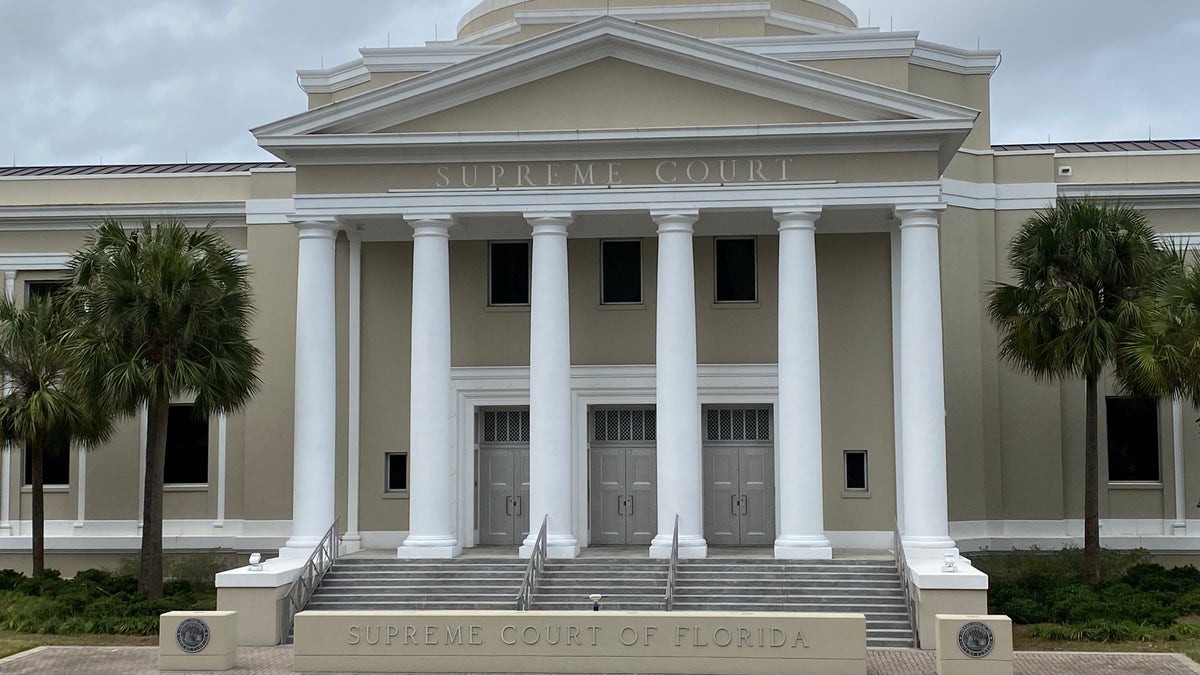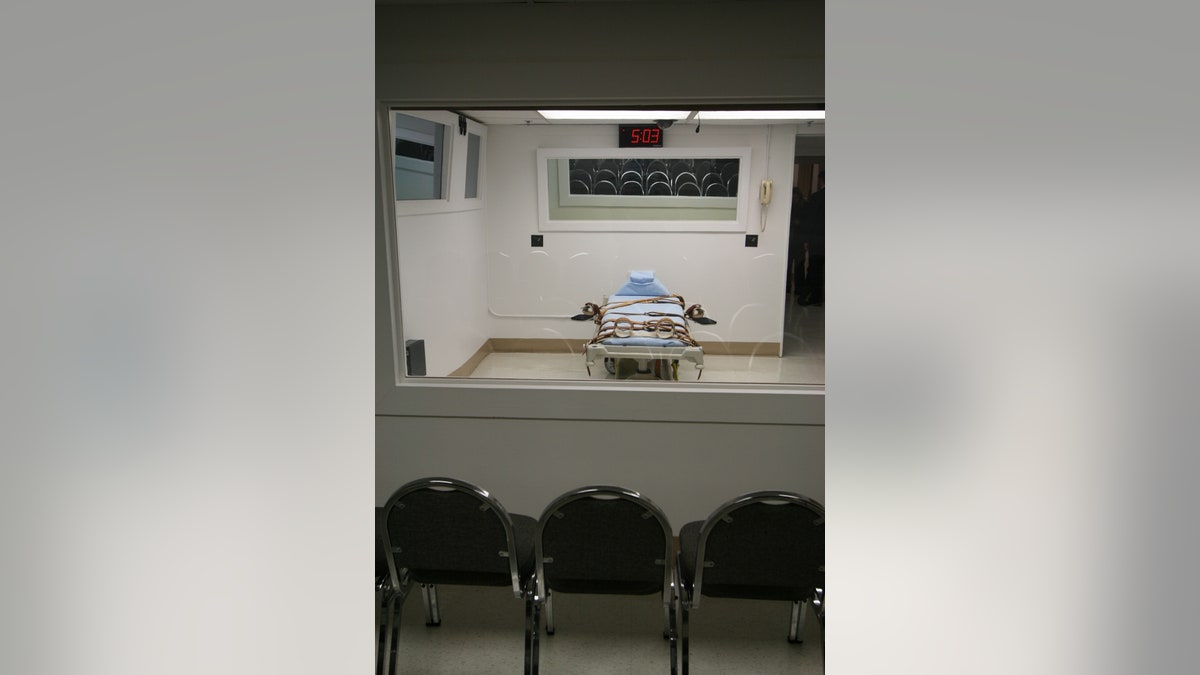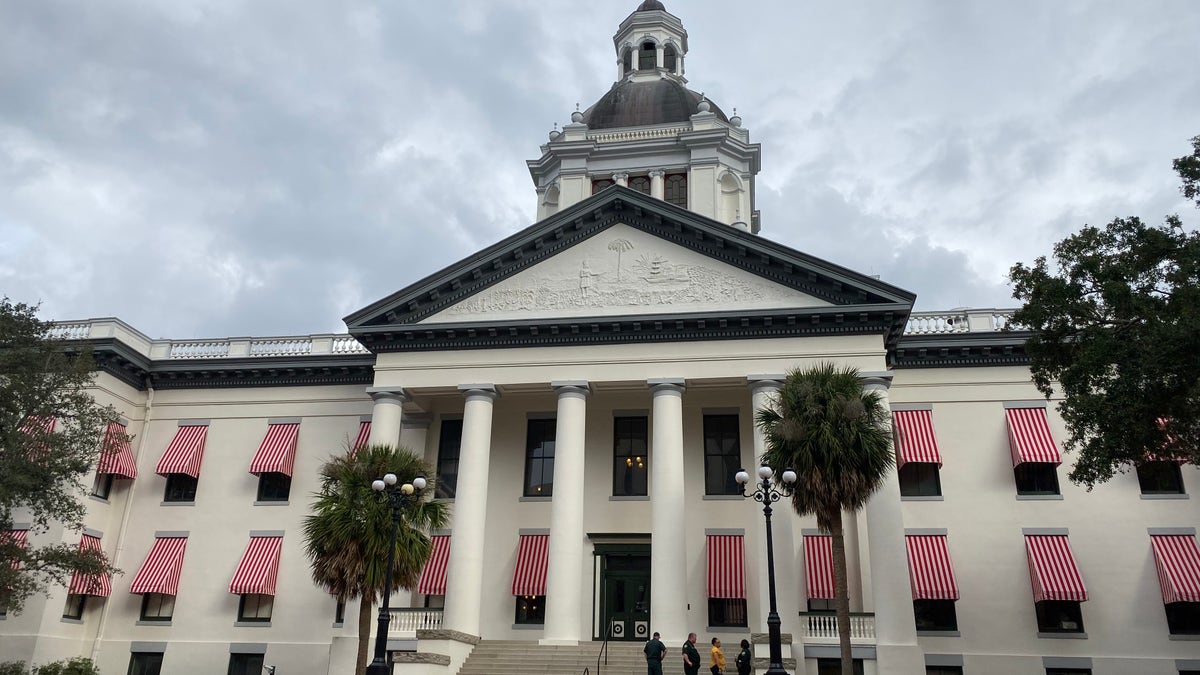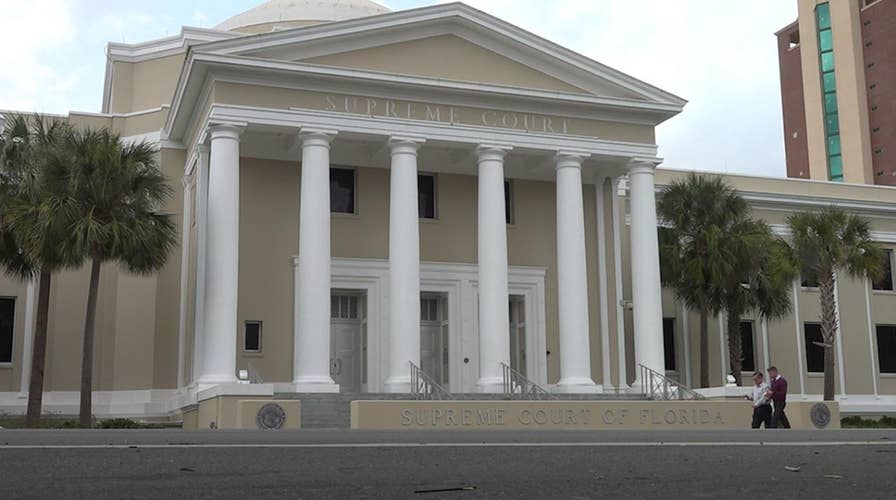Florida Supreme Court rules death penalty does not require unanimous jury
Florida state law says that to sentence a defendant to death, a jury must give a unanimous recommendation to a judge. The Florida Supreme Court ruled in January that unanimity is not necessary. Now, dozens of Florida death row inmates promised re-sentencing don't know what comes next.
TALLAHASSEE, Fla. – In the wake of a landmark Florida Supreme Court decision, dozens of death row inmates in the state seeking resentencing now don't know what their future holds.
For some, it could mean a return to death row.
For decades, defendants could be sentenced to death in Florida even if a jury was divided. In theory, a simple majority would have sufficed.
Robert Dunham, with the Death Penalty Information Center (DPIC), believes this was a dangerous standard.
"There is an extremely heightened risk if you allow non-unanimous jury recommendations for death that you will end up sending innocent people to death row and executing them," said Dunham, adding that Florida has a particularly checkered history with 29 death row exonerations — more than any other state.

Electric chair used on Florida's death row. (Courtesy, Florida Department of Corrections)
But the 2016 Hurst v. Florida case helped change the law and move the state toward unanimity.
"The Florida Supreme Court decided that in fact, the non-unanimous aspect was unconstitutional," said Professor Wayne Logan of Florida State University's College of Law. "And so, the Florida legislature then said 'OK, now we’re to require unanimous jury determinations for death.'"

The Florida Supreme Court building in Tallahassee, Fla. (Robert Sherman, Fox News)
As a result, unanimous jury recommendations for death penalty sentences became the law of the land in 2017.
But the decision also had a retroactive impact. The DPIC estimates that 157 death sentences were declared unconstitutional, and each of those inmates subsequently became eligible for resentencing.
Bjorn Brunvand, a criminal defense attorney in Clearwater, Fla., can recall the day he was able to share this news with one of his clients.
“I remember being able to tell him, ‘I can help you get a new sentencing phase. A new opportunity to live,” said Brunvand.
But just last month, the Florida Supreme Court stunned death row advocates and reversed itself in the case State v. Poole, declaring that the Hurst decision "got it wrong."
"It is no small matter for one Court to conclude that a predecessor Court has clearly erred," read the court's brief. "In this case we cannot escape the conclusion that, to the extent it went beyond what a correct interpretation of Hurst v. Florida required, our Court in Hurst v. State got it wrong."
Logan explained that the composition of the Florida Supreme court is significantly more conservative today and most likely played into the change in interpretation.
"Here it was very clear that a new majority of the court looked at this issue very differently than a predecessor court," Logan said.
In the end, the highest court in the state of Florida, by a vote of 4-1, ruled that there is no such constitutional requirement for a jury to be unanimous in order to sentence someone to death.
"Lest there be any doubt, we hold that our state constitution’s prohibition on cruel and unusual punishment, article I, section 17,5 does not require a unanimous jury recommendation – or any jury recommendation – before a death sentence can be imposed,” the court said.
That ruling has placed the fate of those death row inmates navigating the resentencing process into the realm of uncertainty. There is a growing fear among experts that some of those death row inmates will have their death penalties reinstated.

An execution chamber used in Florida. (Florida Department of Corrections)
“The question here now is going to be, 'What about the people that have already been told they are entitled to a resentencing hearing?'" said Dunham. "Can you take that away from them? Can you retroactively pull the rug out and reinsert the death penalty?”
Brunvand told Fox News that a motion has already been filed to reinstate the death penalty for his client. He thinks that’s an injustice.
“I cannot imagine having been sentenced to death, having received word from the Supreme Court that the scheme is unconstitutional and you’re going to get a new trial, to have lawyers start preparing for trial and then all of the sudden face the prospect that… Oh, we might just send you back to death row. I can’t imagine," said Brunvand.
The Florida Supreme Court ruled in the case State v. Poole that the defendant, Mark Anthony Poole, will have his death penalty reinstated.
Additionally, Logan told Fox News that with this ruling, the proverbial door is now open for state law to be changed again.
“There’s an invitation there from the judicial branch to the legislative branch saying that if you want to, as a matter of policy, if you want non-unanimous death decisions, that’s OK,” said Logan.

View from outside an execution chamber in Florida. (Florida Department of Corrections)
Per the Death Penalty Information Center, all but one of the 29 states that have the death penalty today uses the standard of unanimity. Alabama is the lone exception.
The Florida Supreme Court decision was immediately met with pushback for this reason, including by Justice Jorge Labarga, who wrote the court’s lone dissenting opinion.
“In the strongest possible terms, I dissent,” wrote Labarga. “This Court has taken a giant step backward and removed a significant safeguard for the just application of the death penalty in Florida."
Shalini Goel Agarwal, managing attorney with the Southern Poverty Law Center, also expressed great concern for the ruling in a statement:
"Given the abundant evidence of wrongful convictions and racial disparities in death sentences, requiring a unanimous jury is fundamental to ensure fairness when exacting the ultimate penalty," Agarwal said. "There is no do-over after an execution. That is why unanimity must be the rule."
In the brief, the court clarified that the decision is not meant to be an opinion on policy, just constitutionality. Justice Alan Lawson contends that if the Florida State Legislature wishes to change the law, they will surely consider the fact that Florida would be moving away from the national norm.

Florida's "Old State Capitol" in Tallahassee, Fla. (Robert Sherman, Fox News)
"If the Florida Legislature considers changing section 921.141 to eliminate the requirement for a unanimous jury recommendation before a sentence of death can be imposed, the fact that this legislative change would make Florida an 'outlier' will surely be considered in the ensuing political debate," wrote Lawson.
Because the 2017 state law is still in effect, future death penalty sentences will require a unanimous jury recommendation. Florida Sen. President Bill Galvano, R-Bradenton, told reporters last month that they don't have an appetite for changing the law at this time.
“I don’t think we’re going to take any steps in the Florida Senate to change or address that," said Galvano.




